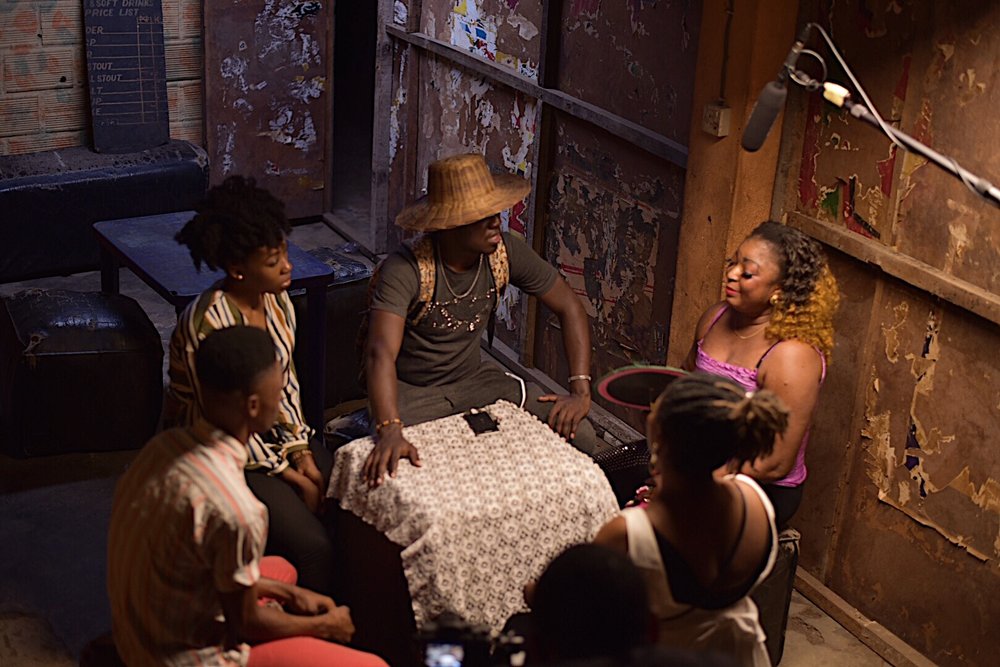Review: Skin (2020)

Skin, the documentary exploring colorism in Nigeria, that made its debut on Netflix last month is a composite of two to three documentaries. On their own each could have been as great as they are distinctive. Together the final product is good, but not coherent enough to make the leap into greatness. The theme is an important one, with resonance beyond its subject country of Nigeria. To deny the prevalence of color bias would be to be willfully ignorant of its economic and cultural consequences.
Although Skin is directed by Daniel Etim Effiong, its front-person is the actor Beverly Naya, whose story is the largest and has the most time on screen. The documentary begins with her recounting a personal experience. Over the seventy-six-minute runtime, a collection of famous Nigerian faces are shown, gorgeously lit, bare faced and shouldered and recounting experiences of how colorism affected their lives for the good or worse, mostly for the worse (the moral framing of the documentary is clear from early on). The strength of skin plays out best here, reflecting a director most at ease with allowing the subjects who are selected with a refreshing diversity. From the stories we are made to experience the traumatic implications of colorism and its long-term effects, even on the most beautiful and successful people.
In other sections, Ms. Naya’s moves across Lagos, Nigeria speaking with professionals whose work is tied to the human skin. There is the medical professional who declares that the skin is the most important bit of who we are. There is the visual artist who gives some historical context to how technology itself is discriminatory to dark skin. There are the buyers who create custom skin lightening products with promises for its abilities to make a woman more desirable to men. And there are the buyers, sometimes remorseful about their habits, but ultimately acknowledging of the privileges a lighter skin has wrought on their lives.
There is a poignant scene where the Ms. Naya is in conversation with primary school children. A girl says “I’m black, but I’m not black black” and is proud of it. In these bits, there is a chance for a bolder documentary exploring the dissonance of women admitting to the habit of bleaching as a poor choice, yet continuing to do so. Its peak point comes at the interview with the Nigerian transwoman and often controversial figure Bobrisky. Despite only having a few minutes of screen time, her candor is especially jarring because she makes no denial of the negative social structures that led her to her self-described transformation from dark skinned to a shocking fair complexion. When asked if she wished she could return to her original skin color, she muses and says yes, but gives a joke about the reason being how stressful the daily application of her lightening cream is.
The documentary’s weakest aspect comes towards its ending where without prompt, we are transported from Lagos to Ms. Naya’s hometown and made to sit through an oral and pictorial history of her family. It feels needless to the viewing experience, and its postulations of an era where value was not attached to skin color feel more suited to a documentary where the protagonist traces their roots more than a modern examination of a societal dysfunction. This is the paradox and pain of skin. In its quest to invite a sense of intimacy with the subject matter, it takes us too deep into the narrative of one person, at the risk of devoting more time other more compelling arcs.
Country: Nigeria
Year: 2018
Runtime: 76 min
Documentary feature
Producer: Beverly Naya
Director: Daniel Etim Effiong
Cinematographer: Muhammad Attah
Writers: Beverly Naya & Daniel Etim Effiong
Cast: Eryca Freemantle, Eku Edewor, Diana Yekinni, Mudi Yahaya, Hilda Dokubo, Beverly Naya, Phyno
















